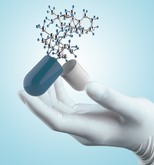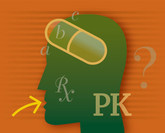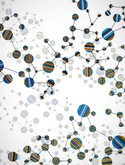Biosimilars/Research
Regulating biosimilars throughout their life cycle
A resolution to increase access to life-saving biologicals was passed in May 2014 at the Sixty-seventh World Health Assembly of the World Health Organization (WHO) [1]. However, there still exist barriers to market access for biosimilars. Authors Drs Hye-Na Kang and Ivana Knezevic, from WHO, discuss the factors that give rise to these barriers and explain the importance of regulatory oversight throughout the product life-cycle of biosimilars [2].
Interchangeability between infliximab biosimilars with respect to immunogenicity
In their editorial, Katsanos and colleagues [1] discuss a study carried out by Italian and Spanish researchers on the immunogenicity of infliximab biosimilars that finds that there is full interchangeability between infliximab biosimilars with respect to immunogenicity [2].
Utilization data and cost-effectiveness of infliximab biosimilar
Studies of Celltrion/Hospira’s infliximab biosimilar (CT‑P13, Remsima/Inflectra) carried out in Canada and Germany have shown that, although there are large savings to be made, there are ‘significant differences in real-world utilization patterns’ of patients prescribed originator infliximab compared to those prescribed biosimilar infliximab (CT‑P13) [1, 2].
Secrecy is an obstacle to the use of biosimilars in the US
Factors that Professor Frank believes may be affecting uptake include naming and interchangeability guidance, insurance payment arrangements and secrecy about manufacturing processes [1]. In this article, secrecy about manufacturing processes is discussed.
Insurance payment arrangements are an obstacle to biosimilars use in the US
The slow development of the market competition for biosimilars in the US may be caused by several factors, according to Professor Richard Frank from the Department of Health Care Policy, Harvard Medical School, Boston, USA [1]. In this article, insurance payment arrangements for biologicals and biosimilars are discussed.
Biosimilars in rheumatology: the current state of play
Biological disease modifying anti-rheumatic drugs (bDMARDs) have revolutionized the management of rheumatoid arthritis (RA) and other inflammatory diseases. Over two decades, their use has risen exponentially but their significant cost has contributed to increasing healthcare expenditure in many countries. Biosimilar development is an opportunity to lower drug expenses and optimize use. This review detailed the current state of biosimilars in rheumatology, including their development, trial data, economic impact and logistical considerations [1].
Interchangeability is an obstacle to the use of biosimilars in the US
According to Professor Richard Frank from the Department of Health Care Policy, Harvard Medical School, Boston, USA, there are several factors that may account for the slow development of the market for biosimilars in the US [1]. In this article, the issue of interchangeability of biosimilars is discussed.
Phase I study of biosimilar trastuzumab demonstrates equivalent pharmacokinetics to reference product
Trastuzumab, a recombinant humanized monoclonal antibody, acts against the tyrosine kinase human epidermal growth factor receptor 2 (HER2), which is overexpressed in up to 30% of breast cancers and gastric cancers and has been linked to poor prognosis. In the age of targeted anticancer therapy, trastuzumab is a key treatment for patients with HER2-positive (HER2+) tumours and is recommended by a number of clinical guidelines. However, the use of ‘originator’ (or reference) biologicals, such as trastuzumab, is associated with high treatment costs; an issue set to be exacerbated by an ageing population. The improved cost-effectiveness potentially provided by a biosimilar may increase patient access to treatment.
Afucosylated biosimilars: the path to matching interrelated critical quality attributes
Advances in analytical characterization and increased understanding of drug mechanisms of action have resulted in the ability to raise the quality and safety of biosimilars by introducing critical quality attributes (CQA), which must be preserved during the manufacturing process. However, to realize these benefits, biosimilars manufacturers must develop the means to ensure these CQAs are met. For afucosylated IgG1s that rely on afucosylation content for efficacy, this has been challenging, since precisely matching both afucosylation content and biological activity has proven to be extremely difficult. In a recent paper, Chung and Zhan [1] elaborate on the underlying basis of these difficulties and highlight the work of several groups that has opened a path to directly addressing this problem.
Naming is an obstacle to the use of biosimilars in the US
Factors that may account for the slow development of the market for biosimilars in the US are discussed by Professor Richard Frank from the Department of Health Care Policy, Harvard Medical School, Boston, USA [1]. In this article, the factor of biosimilars naming is discussed.













